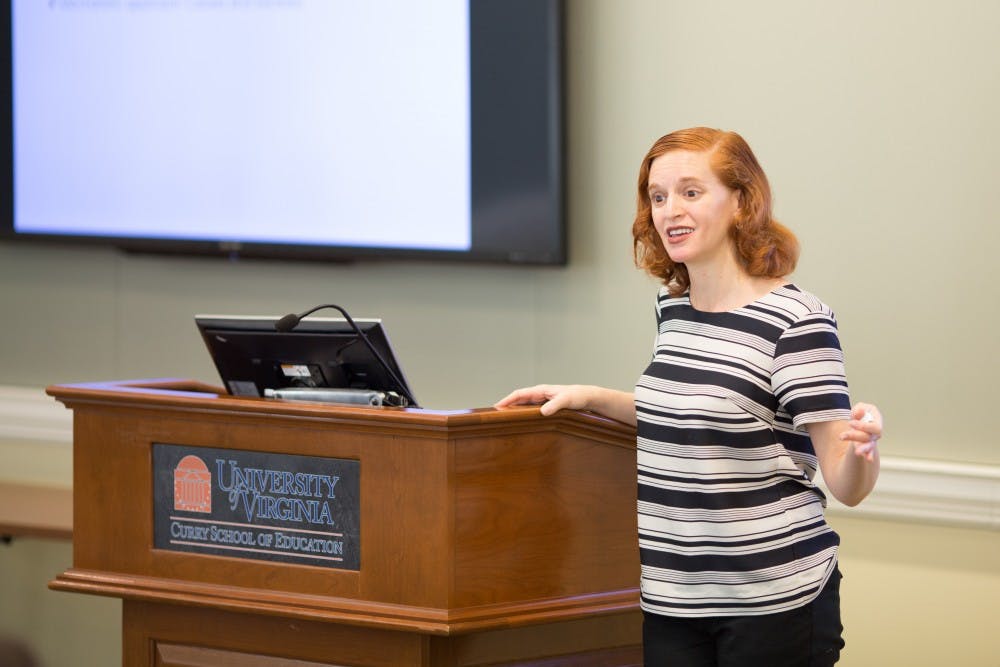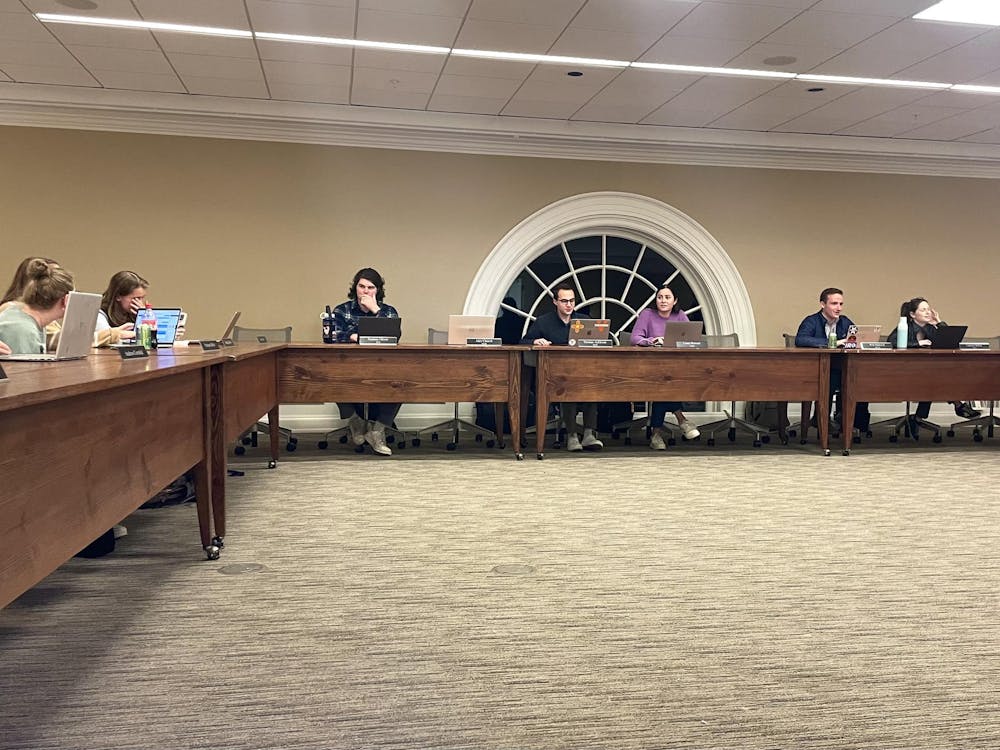Rachel Wahl — an assistant professor in the Curry School of Education — delivered a public lecture Tuesday in Bavaro Hall on combining public education and open dialogue into public forums to improve the relationship between law enforcement personnel and community members. The event was hosted by The Center for Race and Public Education in the South as a part of the Race and Education Lecture Series.
Wahl is an affiliated faculty member of the Center for Race and Public Education in the South and serves as a member of The Council Trust for the Institute for Advanced Studies in Culture. Wahl’s research focuses on whether and how law enforcement personnel learn in response to different policing efforts, such as police-community forums in the United States, and human rights in India.
Throughout her lecture, Wahl analyzed two different methods for fostering better community relations with law enforcement which she described as the learning and pressured approaches. Wahl defined the learning approach as the attempt to seek better understanding between police personnel and the community through education and training, while she said the pressured approach is based on the attempt to compel law enforcement officers to resist the use of violence.
Wahl said recent social movements and campaigns in the United States, such as Black Lives Matter, have propelled the issue of policing reform to the forefront of national discussion. Wahl’s research explores the use of the learning and pressured approaches and whether they allow civilians and police personnel to learn from each other, or if they only force each other to change.
Upon returning from research in India, Wahl said she recognized that the national attention to police violence in the United States had exploded. Since then, she has been working towards developing a third approach to community policing that balances educational approaches such as training programs, public dialogue and social events with compelling approaches such as lawsuits, protests and different forms of public shaming.
“I became interested in public forums as a way that might challenge the officers’ ability to respond to these changes that would be less alienating — a space that learning might occur without the alienating and shaming,” Wahl said.
She mentioned that as a community, we cannot rely on voluntary police learning. According to Wahl, we must figure out how to work in an environment that is going to involve both learning based and pressured based approaches — not just one or the other.
“My work has convinced me that public conversation needs to be a political engagement that humanizes, that is going to require skillful inner and relational work, otherwise we’re just going to be fighting in forums,” Wahl said. “In so many of these issues the mistrust is mutual.”
Wahl also described the importance of not only having conversations in response to altercations and other interactions between police and the community but encouraging ongoing dialogue within communities to prevent future miscommunication. However, in reference to the events of Aug. 11 and 12 at the University and in Charlottesville, Wahl said the kind of conversation that needs to take place may not be immediately realistic after an incident between law enforcement and the community.
“Right after an event takes place, little is going to happen,” Wahl said. “You can imagine a dialogue happening on Aug. 14 in Charlottesville. I mean — you can’t … [but] I really think that the kind of work that communities are doing to put this kind of dialogue into place is so important.”
According to Wahl, balancing police education with community dialouge through means such as public forums is the solution to strained community-police relations. The aim of such forums is to change the way police personnel relate to communities, particularly in regards to limiting the use of force and decreasing violence.
“No learning, or at least limited learning, is going to happen unless people are going to be able to learn under pressure because all of these approaches are going to coexist,” Wahl said. “I suggest that when possible, if we can focus on the what, and work with the who, we’ll be more productive.”
Following the event, fourth-year College student Joumana Altallal said she appreciated Wahl’s lecture and the open discussion she facilitated with the audience afterwards.
“It’s definitely a very timely and relevant subject,” Altallal said. “I think it really applies in all cases and for all students especially at U.Va. in this moment, so it’s important to talk about … It definitely opens the platform for people to learn from the professors they’re around and also people who are studying the political and social aspects of these events.”
This event was the second lecture in the Race and Education Lecture Series.





